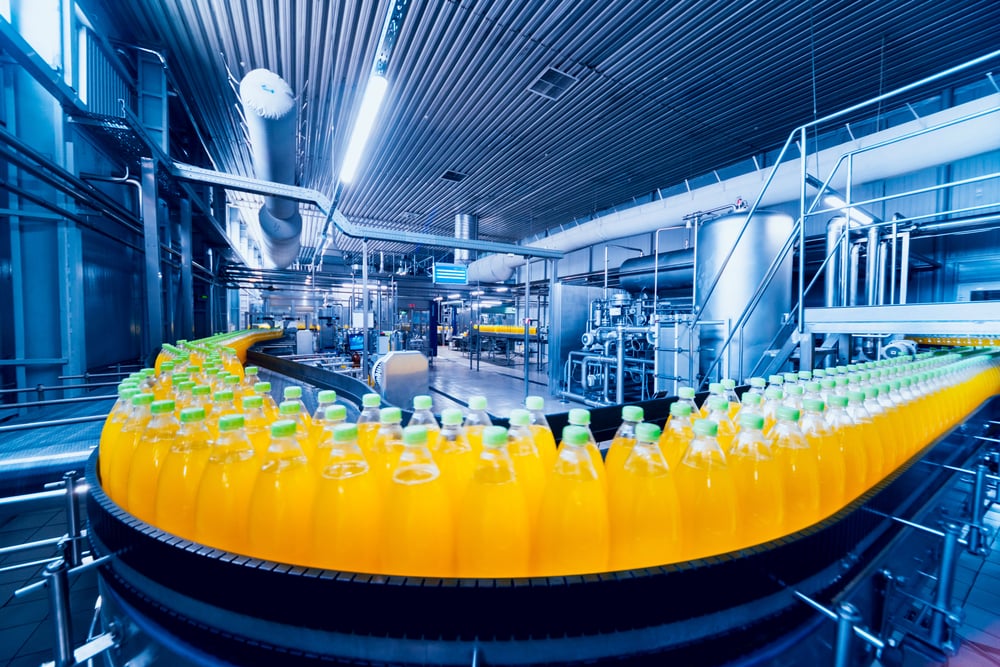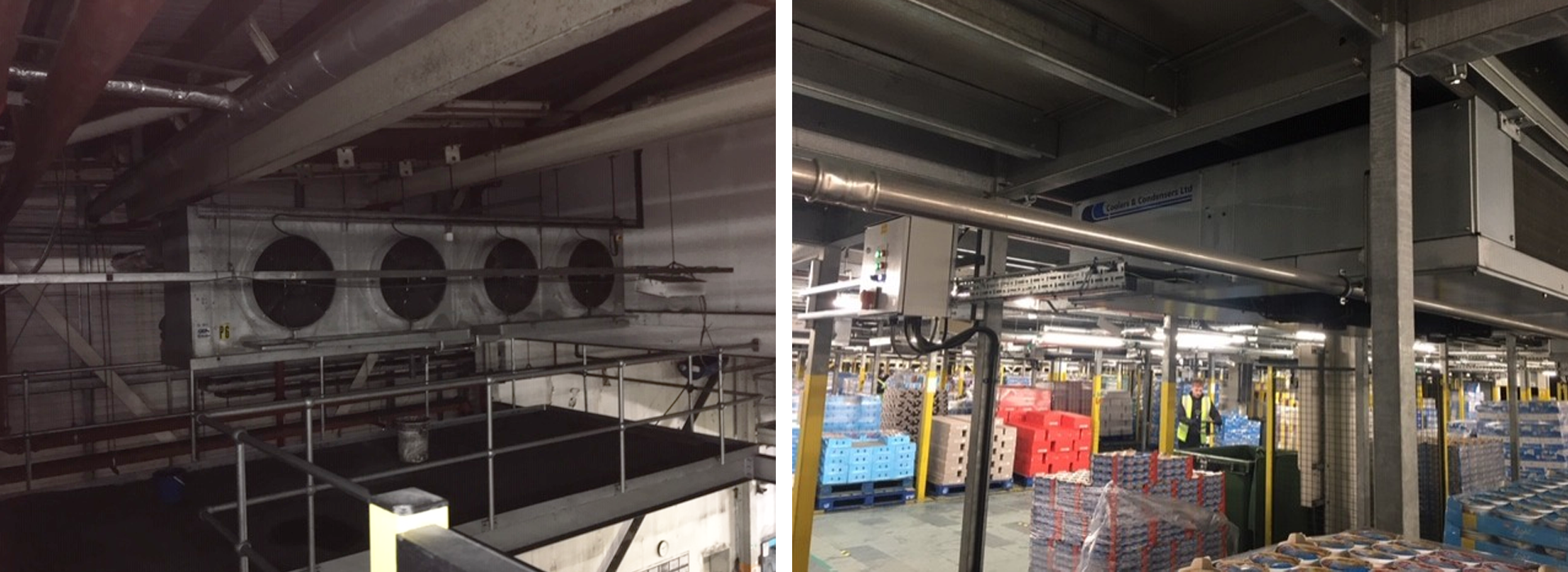Food Industry
Where food is involved, any business involved should ensure the products are not only tasty and healthy, but more importantly safe to consume. Cafes and restaurants all rely on ventilation and filtration to keep the air clean where food is served to customers. Without clean air, it's unlikely those customers will be coming back. Importantly, clean air is essential in spaces where the food is prepared and stored, too, like kitchens, storage facilities, and butchers.
The food industry faces some inherent challenges from cooking and food preparation, like high humidity, temperature, particulate matter, and odours. Without the proper measures, this can impact a customer's experience or affect the quality, and potentially safety, of the food being served.
- Expectations
- Featured Project
- Insights
Expectations
Food Industry
Food industry settings must comply with strict hygiene and environmental control standards, including Hazard Analysis and Critical Control Points (HACCP) and Food Safety Management Systems. However, many facilities struggle with IAQ due to outdated extraction systems, high levels of airborne grease or dust, or poorly regulated humidity and temperature — especially in zones where raw and cooked products are handled in close proximity.
Additionally, COSHH regulations require food businesses to control staff exposure to substances like flour dust (a known respiratory sensitiser), cleaning chemicals, and combustion byproducts from cooking or machinery. Without effective air monitoring and targeted ventilation strategies, businesses can unknowingly exceed Workplace Exposure Limits (WELs), posing risks to both staff health and audit compliance.
We help businesses identify their air quality risks with detailed IAQ assessments and installation of appropriate filtration, ventilation, or monitoring systems. In an industry where poor air quality can open the door to various legal troubles, be confident that the systems within your space are working to enhance the air quality. From small bakeries to large-scale processing plants, we have the knowledge and expertise to offer tailored IAQ solutions which keep staff happy, ensure compliance under UK law, and enhance your brand's reputation.
Relevant services
- HVAC Maintenance
- Fire Damper Testing
- Water Quality Testing
- TM44 Inspections
- Grease Cleaning
- Ductwork Cleaning
- Mould Testing
- WEL Testing

Featured Project
Installing Bipolar Ionisation devices for a leading food producer

Objectives
In the food industry, clean air is essential to keep food from going bad too quickly or absorbing bad smells from its environment. When we were contacted by our client, a leading name in UK food production, we understood how important high quality air is to maintain high staff wellbeing and to keep produce safe for consumption. The client enquired about Bipolar Ionisation technology which works to cleanse the air via charged ions which ""attack"" airbourne pollutants. We were contacted at first in 2019 to generally cleanse the air after some poor air quality tests validated some concerns that the facility's Air Handling Units (AHUs) weren't working effectively enough to reduce smells and purify the air. As a result, they contacted us to determine whether Bipolar Ionisation would be an effective method, to which we agreed.
We were contacted again a year later once COVID had a foothold at the forefront of everyone's minds. Our client, impressed by how effectively the Bipolar Ionisation units worked previously, requested 4 new units to be installed to ensure any COVID-19 particles, or any other microbial matter, would be neutralised quickly.
Solutions
The technology works as follows: the unit interacts with oxygen atoms to positively or negatively charge them. These oxygen ions are released (usually propelled into the environment due to the AHUs airflow) and spread throughout the space. These ions stick to airbourne pollutants to actively neutralise or make them less severe. With microscopic particles, ions clump together and act as a glue which sticks multiple particles together so that they can then be easily filtered through a physical filter within the AHU. While the same is possible for fungal particles, Bipolar Ionisation also neutralises fungi, bacteria, and viruses by disrupting their cellular structures to inhibit their ability to survive and reproduce. This method also works to effectively reduce smells by breaking down certain molecules and Volatile Organic Compounds (VOCs). The method works effectively when paired with air filters like HEPA filters, ePM10 filters, or Molecular Filters which may struggle to capture particularly small particles without the support of Bipolar Ionisation to clump particles together.
We got to work to decide which type of Bipolar Ionisation unit to use. We first needed to understand the size, rate of airflow, and types of filters used within their existing systems. We decided on a leading brand, PlasmaAir, to supply the units to ensure the indoor air of the food storage facility would be cleaned to the highest standard. We fitted these units inside the AHU itself as this helps to keep the interior clean where particles and microbial matter can sometimes get stuck. This also works to reduce the frequency of cleaning and servicing required, leading to reduced maintenance costs.
Results
After our installations, our client and their staff were relieved that the air within their facility was now cleaner. They appreciated that their workplace was now much safer from COVID due to the active neutralisation of microbial matter. Not only did this decrease the staff's likelihood of getting ill, but it was crucial in reducing the likelihood that any viruses could be transported out of the facility via packaged goods.
As a food packaging and storage facility, bad smells used to be commonplace, but our Bipolar Ionisation units worked effectively to reduce these smells. What was once a stuffy, odorous facility became a much cleaner, healthier one almost overnight in which the staff felt much happier working. On top of that, the client's AHUs will now operate for longer without maintenance required, lowering the overall operating costs.
Challenges
- Large food storage facility
- COVID-19 risk
- Sensitive food items
"In this type of environment, it's crucial to keep bad odours and airborne pollutants to a minimum. Fortunately, this client already understood that Bipolar Ionisation would be an effective way to cleanse their air — particularly when COVID was so concerning — and so they approached us ready with a solution which really propelled these projects to be completed very quickly. Following the installations, we set the facility back on track to ensure their food quality wasn't hindered by bad smells, and we kept staff safe by reducing the quantities of bacteria, viruses, and fungi in the air."
Adam Taylor, CEO of ARM Environments
Health
Disease
Food Quality
Insights
Related Insights
Discover Our Other Sectors
Education FAQs
Why is indoor air quality important in food preparation and storage areas? ↓
What are the common indoor air challenges in food industry settings? ↓
Frequent issues include excess humidity, grease in filters and ductwork, cooking fumes, and odours. Without proper extraction and filtration, these pollutants can affect air quality and lead to safety or compliance failures.
Which regulations cover air quality in the food industry? ↓
Businesses must comply with HACCP, Food Safety Management Systems, and COSHH regulations, including HSE Workplace Exposure Limits (WELs) for substances like flour dust and cleaning chemicals.
Do we need to upgrade our entire ventilation system to improve air quality? ↓
Not necessarily. We can assess your existing systems and recommend cost-effective improvements such as targeted filtration, UV-C upgrades, or air quality monitors. If the budget allows for it, retrofitting the HVAC systems can future-proof the space and ensure maximum effectiveness at cleaning the air, but we understand that this isn't always possible and can offer alternative solutions as well.
How can ARM Environments help food businesses manage IAQ? ↓
We provide tailored IAQ assessments, real-time monitoring, filter and ductwork evaluations, and compliance support. We are experienced professionals who can provide the guidance and expertise necessary to improve the air quality in these spaces and produce a clean, healthy, and compliant space for any food preparation or storage space.
Concerned About IAQ?
Contact us today for expert advice and a professional survey.
Why Choose ARM?


